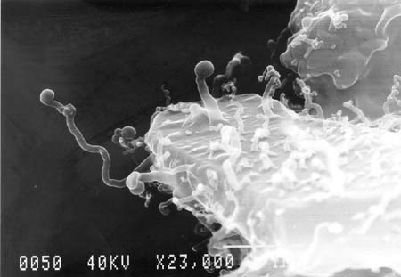There is no such thing as a “mountain.” There is no such thing as a “bird.” There is no such thing as a “machine.” There is no such thing as a “city.”
As humans, all we have for making sense of the universe around us is a collection of man-made concepts. You may say “Of course there is such a thing as a mountain; I have seen a mountain, I have climbed a mountain.” You may also say “Of course there is such thing as a bird; they are everywhere.” And in some sense, you are correct. However, in a totally objective sense, you are not.
Indeed, mountains, birds, machines, and cities are readily visible in our world. The problem arises when you begin to give absolute definition to those things. Let’s consider the example of “mountains:” what exactly constitutes a mountain? When does a perturbation of Earth cease to be called a “hill” and become a “mountain?” Is there a predesignated size it must reach before it can be labeled a mountain? Must it reach a certain altitude above sea-level before being assigned the rank of “mountain?”
Of course not! For all intents and purpose, there is no strict scientific measurement of “mountainness.” It is a man-made concept for what we observe as ‘really big hills.’ Without humans here to make the distinction between a hill and a mountain, there is none. There is only a universal measurement of spatial distance, which when measured relative to Earth’s center, we call “height.”
The same goes for cities. When does a “town” sprawl enough to be called a “city?” Again, there is no clear conceptual boundary – it is inherently subjective. We may have bylaws which try to assign a population number, but again, these are superficial and man-made.
What about birds? Surely they must be easier to define. Well they are more definable than mountains, from a scientific perspective. For example, birds must meet certain biological criteria: bipedal movement, wings, feathers, eggs, vertebrae, a certain hip structure, etc. If an animal does not meet these specifications, it cannot be called a “bird.” The problem with this particular concept is that there are such a multitude of creatures on Earth that fit this description that that to conceptualize them all under one umbrella seems wrong. Thus the concept does not describe any one thing, it describes an idea. Consider the Kiwi, the famous flightless bird from New Zealand. It’s feathers are more like fur, and it’s wings are so small that they are invisible. It is a very different creature from the “birds” we are used to in North America such as crows and ducks. A Kiwi is about as similar to a duck as humans are to squirrels. Why don’t we subsume humans and squirrels into the same animal group?
Well actually, we do. We call ourselves mammals – a group with it’s own set of criteria. My point here is NOT that such concepts are not useful – indeed, they are our only way of making sense of the immense complexity of life around us – my point is that these concepts, while productive, do not describe actual things in the real world.
Follow this logic through, and you come to a weird and scary conclusion. For all the man-made concepts that have evolved throughout the history of human language, what we are actually experience in the sensory universe is still not being described truthfully. According to the basic tenets of science, at the end of the day, all that we truly experience as human beings is a chaotic interaction of energy and elementary particles. They may take the form of a computer screen, keyboard and mouse, but they are all ultimately composed of the basic building blocks of the universe. But… you don’t see it that way.
This is where the necessity of conceptual labels becomes obvious; the human mind is not able to experience the world as a neutral observer of physical chaos. We instinctually organize the world around so that we can extract meaning from it. Even concepts fundamental to our being such as “self,” “universe” and “time” are man-made. Who’s to say whether they refer to any objective truth or not? It’s just impossible to know.
Working from birth, people build their conceptual universes, and they eventually become them. Your concept of “love” will never be the same as mine, and my concept of “God” will never be the same as yours. We may agree on what constitutes a bird, but this agreement is contrived; the concept of a “bird” itself is ultimately superficial. Herein lies ultimate human dilemma: to struggle to agree upon the workings of a universe, when each of us has constructed that universe with our own variations upon thousands of man-made concepts. We are each programmed to bo so drastically different, that it boggles the mind that we are able to meaningfully interact at all.
Thus, to argue with others about the existence of God, or a belief in love, is silly. You’re not dealing with the same concepts, and you’re not talking about the same things. Thus, the conversation is pointless.
I suppose I’ve just dabbled in some branch of existential philosophy. Who knows. I don’t care for labels. I find it difficult to breakdown the concept of a concept without referring to… other concepts! Perhaps it’s a vain pursuit. Yet I think each of you knows what I mean… but in your own way, of course.
